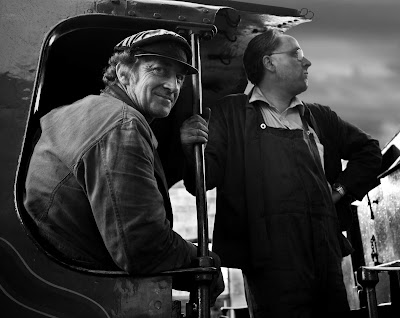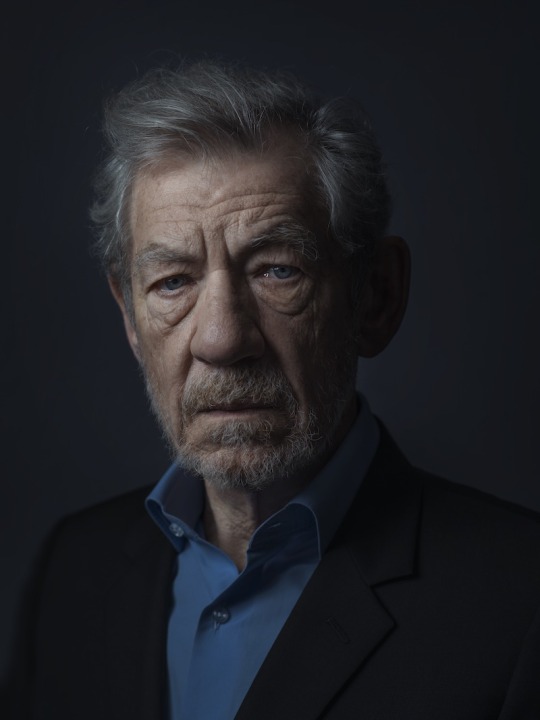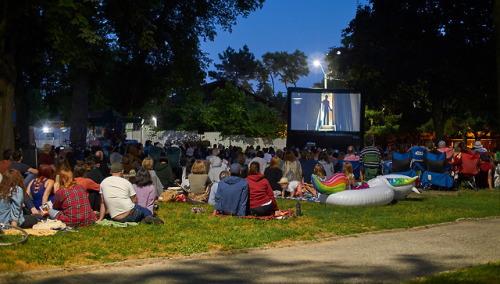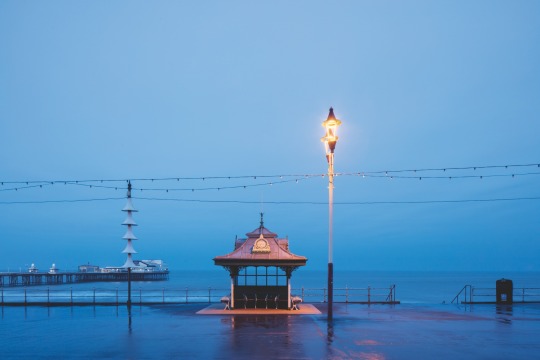Photographers

Oleg Ferstein: The Art of Focusing on the Performer
1x Blog-Photographersby Editor Marius Cinteză
“There is a common convention about photography as about an art of capturing a moment. It is very true despite the fact that rarely someone tries to reveal the very definition of a Moment! What is it? What are we dealing with? How long does it last? And what to do with all this endless time?” - Oleg Ferstein
Oleg Ferstein is a professional director, performer, and lecturer, working for the last 30 years on different theatre stages around Europa, starting in Moscow, then Geneva, London, Barcelona and Amsterdam. Visual arts always were a part of his profession and the photography became a second occupation. He took a camera into his hands about 10 years ago when he started to shoot documentary films and for the last 5 years he is full time busy with photography.
Oleg is mostly known under the artistic nickname “Formofadrop”. This is the title of a theoretical research and book that examines the realization or implementation of an enclosed space of a performance in it's any possible formation. That’s why the main focus in all his creative activities, whether photography, stage or screen is on the performer - whether it's a person, object, light or even the entire topos / arena!
I invite you to discover more about Oleg, his inner experiences as a visual artist and his amazing photography portfolio in the interview below!
Oleg, thank you so much for accepting my interview invitation! To start, I would kindly ask you to introduce yourself and tell us shortly about Oleg Ferstein – the man behind the camera!
Thank you for the invitation, Marius! Geographically speaking, I'm a man without any roots. My mother was born in Romania, my father from Ukraine and I was born in the south of Kazakhstan. Then two years in the army, then studying in Moscow Theater Academy, and now, for almost 24 years, I'm a citizen of The Netherlands, living in Amsterdam.
All those movements have definitely influenced the man behind a camera, as you put it.
But not more than that.
I'm deeply convinced, that who we are - are the stories, we are telling at the very moment, in the particular circumstances. Me, who is speaking with you and the man behind a camera are different people.
You are a professional actor and director, working on different theatre stages around Europe for the last 30 years. How is this profession interacting with photography?
Any creative process has a similar origin. I consider our preoccupation with an alleged dis-balance of our surrounding as the very source of any form of creativity. We are trying to create another reality, cause we are obviously unsatisfied with the perceived one. That way, we forced to build an enclosed space for our escapades – a stage, a canvas, a sheet for notes or a viewfinder and the very shot. There we can do whatever we want to. Naively assuming that we are becoming the authors of something unique and valuable. We don't want to accept the fact that from the moment, that our work is released, it doesn't belong to us any more. Everyone who is willing and able to perceive a performance, a drawing, a piece of music or a photographic image, with no fail, become an author. What is left for us is to blush aside from joyful pleasure or a shame.
What first attracted you to the photography domain? What was the most important experience so far that have influenced your steps in photography?
Well! The comatose state of theatre, I presume, was the main reason to move to the territory of a screen, first... It is 10 years ago, that I started to shoot documentary films. At that time I took а camera into my hands. And now, it is about 5 years that I'm full time busy with photography. I can't really say what attracted me to photography in the first place. Visual arts always were a part of my profession. I guess, the conscious realization of my approach to photography appeared later, when I start to study it. By looking through a countless amount of photographic images, by reading quite a number of theoretic researchers and essays dedicated to photography, and certainly by shooting every day and mastering the camera and editing process, I finally start to gain some confidence about my own way.
How would you describe the photography and what the photography means to you?
Reflecting vs Capturing! That's the motto! :) Photography for me is a performance. And therefore performer is the most important element in the process of approach to a project. Performer! Whether it's a person, object, light or even the entire Topos - Arena. In more common terms, we name it a subject. But the category "performer" is crucially important for me. A performer is able to initiate a communication. I'm always trying to identify myself with a performer. Every image I present to a viewer is a kinda self-portrait. At least, that is how I would like to see it.
Your portraiture work (“Facing a face” project) conveys both emotion and tranquillity. What is the relationship with your subjects and what is the secret to obtain this special mood?
O! Thank you so much, Marius! It sounds very flattering!
And I'm truly pleased that you do perceive it this way!
The full name of this continuous project is "Facing a Face when a Face is not a subject" When dealing with portraiture, the most important for me is to reveal an expression. I'm not interested in facial features. I'm not trying to expose a beauty or an ugliness. Independently on my relations with a performer, whether it is my daughter, my wife or a model, I see for the first time in my life, I try to communicate with her or him. It always reveals a huge complex of conditions imposed by the performer, standing in front of the camera! There are no doubts, that the only way to establish communication with a subject is to unreservedly accept all the conditions and circumstances it imposes or provokes. In simple words: you cannot demand from a cat to bring you a cup of coffee, but stepping on his tail will unavoidably provoke a response. And I don't have any secrets. I just consider performer as an initiator of communication, and not myself.
Your artistic nickname is Formofadrop. What is the story behind it?
"Form of a drop" is the title of my theoretical research and book. It examines the method of realization or implementation of an enclosed space of a performance in it's any possible formation. First time I presented this method in London to students - scenographers. Behind my back, they started to call me Formofadrop. It was very amusing and I decided to take it as my artistic nickname.
For many photography is “the art of capturing a moment”. How would you define the Moment and why it is important in your photography?
Indeed! It is a common convention about photography! And in fact, rarely someone tries to reveal the very definition of this phenomenon! What is the Moment? What are we dealing with? How long does it last? And what to do with all this endless time?
I came up with a very simple definition for myself. The Moment is I, placed within an event, a happening, a passage. And coming back to your first question about the man behind the camera, I should say - it is never the same person. Identifying myself with a "moment" is helping to realize the emotional state of this particular event and adjust the approach accordingly.
Where do you find inspiration for you photography?
The word Inspiration is so turbid! It is, in fact, a psychotic state, revealing euphoria or depression. It comes from everywhere. It is a very sweet and warm hole. One might get addicted to it. When I'm sketching or thinking about a project or just walking with the camera, I really trying to get rid of that kind of states. It is disturbing! Doesn't let me be concentrated, to be alert and focused. What I'm searching is not an inspiration, but interaction. I'm searching for a performer. Or performers who have to create a chain of interactions finally.
How important are the story and the composition in your photography? What else makes an image remarkable?
If we are speaking of a story, we can't really point on its importance. The story in every creation is unavoidable. Whether we like this story, disgusted by it or even don't want to perceive it at all.
A composition is a different case. It is a conscious action. Neglecting of the composition, it's rules and laws leads to an almost inescapable failure.
Actually, I don't know more important means than the Composition. What is most interesting, in my opinion, that no one is ever able to master it fully. It is an endless process of development of your skills as a photographer or visual artist. Because a composition is a treasure map for a viewer. Leading him from one point to another. It is a way to achieve an alleged balance within the image. And a balance is the most deceptive and insidious notion. And about your question - what else makes an image remarkable? I presume it's not what, but who! :) Nothing makes an image remarkable! Only a viewer will decide if it is remarkable or not.
How would you describe your photographic style and vision, Oleg?
I can't speak of my style. Again, I'm convinced that this is a privilege for a viewer or qualified critic. And about my vision I have said already: my vision is focused on a performer.
Can you please tell us something more about your workflow? How much effort do you put in the post-processing stage of your photography?
Usually, before I go for actual shooting, I spend some time sketching and thinking over the setting of the project. Certainly, I am snapping too. Just to practice working with a camera or studying a lens. But those shots mostly go to trash. I rarely create a series from one setting. It is important to me that series represent a true variety. Otherwise, I find it boring. Post-production doesn't take much time. Half an hour - an hour at most. I consider myself as a very advanced user of photo editing software. :) The most time-consuming process is a study of the material. It takes sometimes up to a year before I get a clear idea of what the final release will be.
What is the equipment you currently use (e.g. camera, lenses, tripod, etc.)?
All my shots are performed by full-frame digital cameras, old analogue cameras - 35mm, and Polaroid. I prefer Canon to Nikon. Very much enjoying 5D mark IV. Further, I possess all the necessary equipment for the most complexed work either in studio or outdoor.
Oleg, you have joined the 1x community in 2015. Where did you first learn about 1x and why do you think 1x is different?
Indeed I create my account on 1X in 2015, but I started to join it only last year. It was an advice of a fellow photographer and I followed it. I discovered a big number of extraordinary photographers on 1X. And this is the most important achievement in my opinion for any online community. I also have to say that for quite a while I couldn't grab and figure the interface. But the crew was extremely friendly and helpful. There are many great features presented by 1X site, but one I found the most remarkable and quite unique and brave! The fact that all the crew are openly presented on the site creates a very warm and trustable atmosphere in the community. I don't know any other site with such wide-open doors. And though I don't visit the site very often, simply because of a drastic lack of time, I still consider 1X as one of the most remarkable photo-communities on the web.
Who are your favourite photographers whose works have influenced you and your photography?
Ouch! There are so many favourite photographers on my list! Yousuf Karsh, Richard Avedon, Henri Cartier-Bresson, Helmut Newton… and I can continue and continue. And still, the greatest influence on me is rendered by my friends - fellows photographers: Alexandru Crisan, Marcin Sacha, Hengki Koentjoro, Maria Frodl, Roberto De Mitri, Alessandro Rovelli, Aleksandar Budjevac, Monika Cichoszewska, Yucel Basoglu, Massimiliano Balo', Patrick Ems and many many others. Last year we lost one of the most significant photographers, in my opinion, Andreas Heumann. And it is a big loss!
What is your favourite photo taken by yourself and why it is special to you? What is the story behind it?
I don't have favourite photos taken by me. I’m always in love with the next one. The one - I'm working at the moment. But I have some works which are remaining very emotional for me. One of them is the series "Overcoming". It was made when my daughter turned 14 years old. That is the age when you are not a child any more, and you are, in the most of the cases, even not considered as one. But, you still can't grab the whole understanding of an adult life! You feel trapped, imprisoned! And another complication is sexuality, which is overflowing you, and you feel betrayed by yourself!
Now, since we almost reached the end of this interview, I would kindly ask you to share with us your future plans or photographic projects you would like to involve in.
Last year I with my partners have founded a brand new Art Alliance. OOze - Alliance of contemporary visual artists around the globe, with the headquarters in Amsterdam. The main goal of the Alliance is to represent, support, exhibit, and finance its members. OOze Alliance is acting as an enterprise and as a foundation. We would very much like to cooperate with 1X. I'm sure we can mean a lot to each other. And we will approach Ralf Stelander and Jacob Jovelou, the founders of 1x, shortly. All my time now is devoted to this project. Concerning my photographic work - it's continuing. I'm just a few weeks back from China and have shot 12 settings with models and architecture. It is about 5000 RAW images are waiting for their selection and development. Some of them I'll definitely share here on 1X.
I wish you good luck with these future projects and thank you so much for this interesting discussion, Oleg!











































